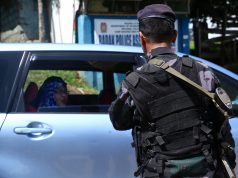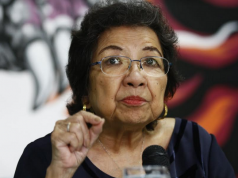MANILA, Philippines – Six lawmakers from the House of Representatives’ opposition bloc lodged the first petition before the Supreme Court challenging President Rodrigo Duterte’s May 23 declaration of martial law in Mindanao following the terrorist attack in Marawi City.
The petition, docketed as G.R. No. 231658, assailed Proclamation 2016 as “bereft of sufficient factual basis” and asked the high court to nullify it.
The petitioners are Representatives Edcel Lagman of Albay, Teddy Baguilat Jr. of Ifugao, Edgar Erice of Caloocan, Emmanuel Billones of Capiz, Tom Villarin of Akbayan, and Gary Alejano of Magdalo.
The petitioners argue that there is “no sufficient factual anchorage” for the proclamation because of the following:
1. There is no rebellion or invasion where the public safety requires the declaration of martial law and the suspension of the privilege of the writ of habeas corpus in Marawi City or elsewhere in Mindanao.
2. Mere conclusions of fact and law on the pretended existence of rebellion and/or invasion will not serve as sufficient basis since errant conclusions have no legal pedigree.
3. No less than the military establishment has admitted that the current armed conflict in Marawi City was government-initiated and the armed confrontation was precipitated by the military operation to neutralize or capture Isnilon Hapilon, a high profile terrorist commander, which was resisted by the Maute Group of terrorists.
4. Consequently, the alleged “siege” of Marawi City was actually an armed resistance by the Maute Group to shield Hapilon from capture, not to overrun Marawi and remove its allegiance from the Republic.
5. The proffered rebellion and/or invasion is at most a threat akin to “imminent danger” which has been obliterated from the 1987 Constitution as an alternative ground for the declaration of martial law and the suspension of the privilege of the writ of habeas corpus.
6. The alleged facts contained in Proclamation No. 216 and the President’s Report justifying the imposition of martial law and the suspension of the privilege of the writ of habeas corpus turned out to be mostly inaccurate, simulated, false and/or hyperbolic and the list of terrorist acts or incidents of violence are either distant or have been earlier solved with the apprehension and prosecution of the suspected culprits.
The lawmakers noted “fatal inaccuracies and falsities” in the proclamation and President Duterte’s Report to Congress, which included the following:
a) Contrary to the President’s Report, the Amai Pakpak Medical Center (APMC) was not overrun by the Maute Group according to Dr. Amer Saber, APMC’s Medical Director, and the medical facility remains operational.
b) The Landbank of the Philippines said that its branch in Marawi City was not ransacked by the terrorists, contradicting the President’s Report.
c) The Senator Ninoy Aquino College Foundation was intact as of 24 May 2017 and Marawi City Schools Division Assistant Superintendent Ana Alonto said that the Marawi Central Elementary Pilot School was not burned by the terrorists, thus belying the President’s Report.
d) The Police Chief of Malabang in Lanao del Sur, Senior Inspector Romeo Enriquez, is alive and was not beheaded by the terrorists, contrary to the claim of President Duterte upon his arrival from Russia on 24 May 2017.
e) Contradicting Defense Secretary Delfin Lorenzana’s press briefing in Moscow on 23 May 2017, the Armed Forces of the Philippines denied that the Marawi City Hall was occupied and Mindanao State University (MSU) Vice President for academic affairs Alma Berowa assured that MSU has not been occupied.
The lawmakers said Proclamation 216 was also flawed because the President acted alone, without recommendation from or consultation with ranking defense and military authorities.
“The absence of recommendation and consultation was admitted and confirmed by Sec. Lorenzana when he briefed members of the Senate and the House of Representatives,” they added.
They said that while Section 18 of Article VII of the Constitution empowers the President to declare martial law and suspend the writ of habeas corpus “in case of invasion or rebellion, when public safety requires it,” the same provisions grants special jurisdiction to the Supreme Court to review the “sufficiency of the factual basis” of such declaration or suspension.










